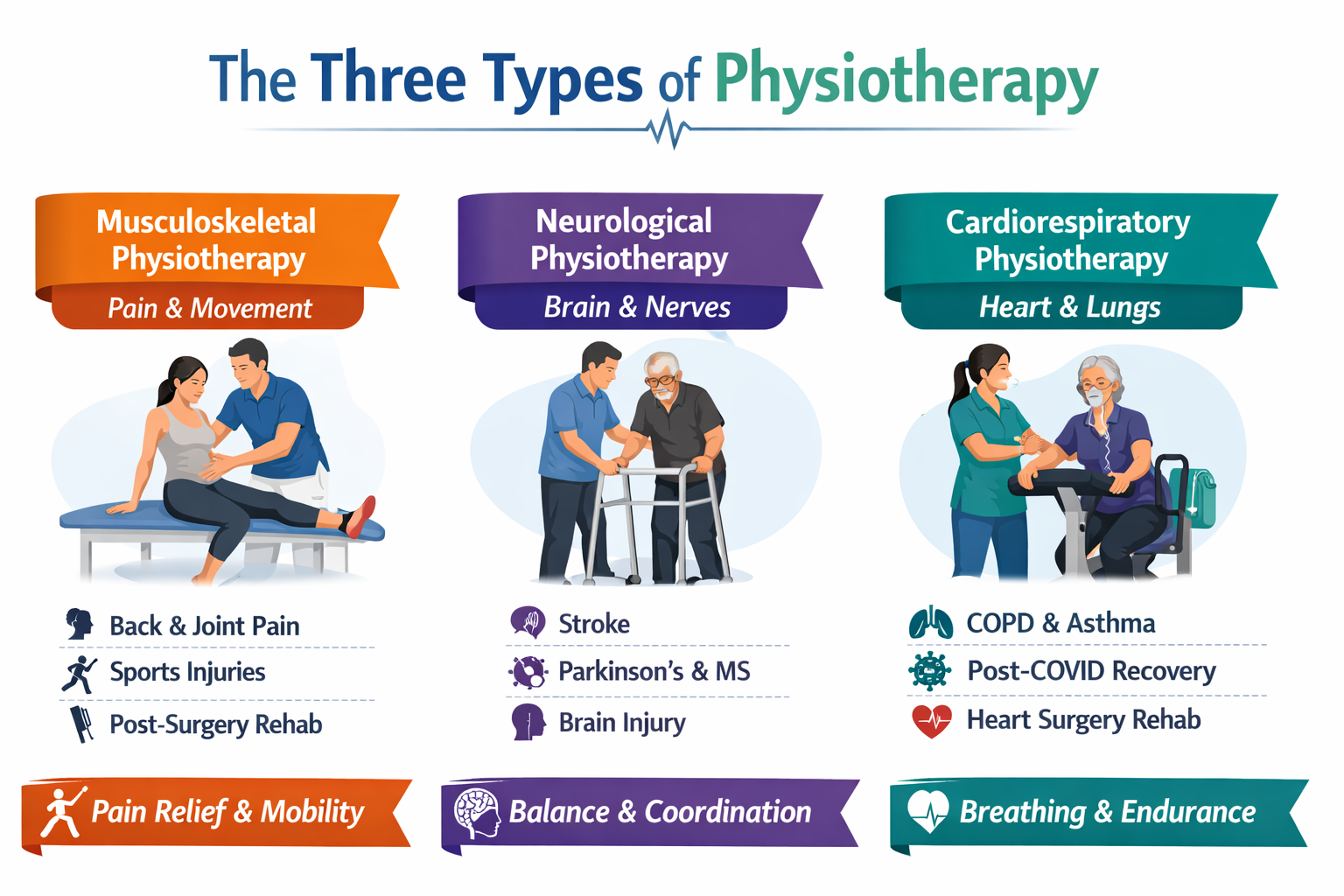
Book An Appointment
802 Southdown rd, Unit # C1, Mississauga, ON, L5J 2Y4
Email: goactive.mississauga@gmail.com
Book Appointment Call UsMore Recent Blogs

Fri Oct 17
3 Ways Physiotherapy Supports Chronic Arthritis Management
Regaining Mobility and Comfort Through Physiotherapy
Chronic arthritis affects millions of Canadians, making daily activities like walking, bending, or lifting challenging. While medications help manage symptoms, physiotherapy provides a practical approach to maintaining Mobility, reducing discomfort, and improving overall function. For residents in Mississauga, physiotherapy can be the solution to regain control of everyday life.
What Physiotherapy Offers for Arthritis
Physiotherapy is a treatment method focused on improving movement, strength, and joint function through tailored exercises and techniques. For chronic arthritis, it aims to:
- Maintain joint flexibility
- Strengthen surrounding muscles
- Reduce stiffness and discomfort
Unlike short-term fixes, physiotherapy addresses long-term effects by creating sustainable movement habits. It targets not only the affected joints but also overall balance, endurance, and Posture, giving patients a greater ability to stay active.
Why Physiotherapy Matters
Arthritis can gradually limit Mobility, making routine tasks difficult and increasing dependency on Medication. Physiotherapy helps:
- Manage Pain – Targeted exercises and manual techniques relieve pressure on joints.
- Preserve Motion – Stretching and movement therapies prevent stiffness.
- Strengthen Muscles – Supporting muscles take stress off joints, reducing injury risk.
Failing to implement these interventions can result in a loss of independence and a reduced quality of life. Physiotherapy empowers patients to integrate movement safely into daily routines while addressing pain at its source.
How Physiotherapy Helps Manage Chronic Arthritis
1. Pain Relief Through Guided Exercise
Persistent joint pain is a common challenge for individuals with arthritis. Physiotherapy addresses this issue with structured exercises designed to strengthen the muscles surrounding the joints and reduce strain. Low-impact activities such as swimming, cycling, or resistance band exercises are ideal for preserving movement without overloading joints.
Physiotherapists in Mississauga create personalized plans based on the patient’s condition and goals. Consistently performing these exercises can significantly reduce discomfort and help patients regain Confidence in daily movements.
2. Maintaining Joint Function and Flexibility
Arthritis often leads to stiffness that limits Mobility. Physiotherapy addresses this with stretching routines, joint mobilization techniques, and controlled movement exercises. Stretching helps lengthen muscles and improve flexibility, while guided joint mobilization restores natural motion.
Over time, patients find that everyday tasks—such as bending, reaching, or walking longer distances—become more manageable. Preserving joint function reduces the risk of further deterioration, allowing patients to maintain their independence for a longer period.
3. Integrating Physiotherapy Into Daily Life
Physiotherapy extends beyond clinic visits. Patients receive guidance on safe Posture, lifting techniques, and pacing activities to avoid overloading joints. These strategies help manage symptoms during flare-ups and support long-term Mobility.
Tele-rehabilitation also provides remote guidance for individuals who are unable to attend in-person sessions. Patients can follow exercise routines online, receive professional feedback, and maintain consistent care from the comfort of their own homes.
Additional Therapies That Complement Physiotherapy
While physiotherapy is central to arthritis management, other therapeutic approaches can support recovery:
- Chiropractic – Supports spinal alignment, which can reduce stress on joints and improve overall Posture.
- Massage Therapy – Helps relax muscles surrounding stiff joints and eases tension.
- Acupuncture – Can relieve pain through targeted pressure points, complementing physiotherapy exercises.
- Pelvic Floor – Strengthening these muscles improves core stability, enhancing overall functional Mobility.
These therapies, when combined with physiotherapy, offer a more comprehensive approach to managing arthritis symptoms.
Long-Term Benefits
Regular physiotherapy sessions provide long-term advantages, including:
- Reduced reliance on medications
- Improved functional independence
- Slower progression of stiffness and joint deterioration
- Increased Confidence in performing daily activities
Physiotherapy also supports mental wellbeing. Chronic pain and limited Mobility often cause frustration or anxiety. Engaging in structured physiotherapy helps patients regain control, participate in social activities, and maintain a positive outlook.
Choosing the Right Physiotherapy Clinic in Mississauga
Selecting a skilled physiotherapy clinic is crucial for effective management of arthritis. A professional clinic evaluates each patient’s specific condition, develops a tailored program, and monitors progress to ensure results.
Residents of Mississauga who want a solution for chronic arthritis can consider visiting Go Active Physiotherapy. Our physiotherapy clinic offers personalized programs designed to reduce pain, maintain joint flexibility, and support everyday independence. With expert guidance and consistent care, patients can regain Confidence in their movements and manage arthritis effectively.



